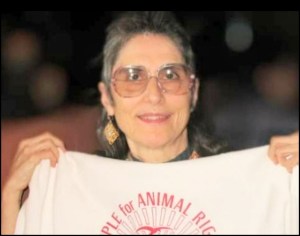Four Books that Reformed US Culture
Written and translated into Spanish by Rob English
Before I begin, I’d like to explain that your usual columnist in this space, Linda Destefano, passed away in an accident since her last column here. Throughout her adult life, Linda fought enthusiastically for people and animals and the environment, and it was my honor to translate her words in CNY Latino into Spanish. May she rest, now, in peace.
And speaking of translation, I have noticed that English language government notices are arriving in my mailbox offering me a free translation into Spanish, Portuguese, Haitian Creole, French or any of a dozen other tongues. Thank you, very thoughtful. Also, I could use some help sorting out and processing all the information that comes to me from dozens of various sources. What with friendly word-of-mouth, television, internet, radio, print, classroom lecture, church pulpit and social media, it seems these days that we all live in the shadow of a modern-day Tower of Babel!
Do you remember the Babel story from the book of Genesis? The people attempted to build a tower to Heaven but God responded by giving each human being a different language; thus, none could understand the other, the tower could not be finished, and, as ever, no one could go to Heaven but through Saint Peter’s gate. These days each of us is being inundated individually with all manner of news – true news, half-true news, fake, funny, inspirational, and irrelevant news – information from so many sources that it’s hard to think of us as one culture. Yet I believe we are.
That we are one culture is proven to me by the great success of at least four influential books that broke through the American  epistemological morass and awakened us as one human people, no matter what language we speak in our kitchens.
epistemological morass and awakened us as one human people, no matter what language we speak in our kitchens.
I’m referring to four books: 1) the great anti-slavery novel, Uncle Tom’s Cabin, by Harriet Beecher Stowe; 2) the hair-raising exposed of early twentieth century meat production, The Jungle, by Upton Sinclair; 3) the non-fiction book that awakened America and the world to our shared need for environmentalism, Silent spring, by Rachel Carson; and 4) The Grapes of Wrath, by John Steinbeck, a novel that reminded all in America that no one here is immune to eventualities that could cause families – US families – to migrate in desperation.
Though they were hugely popular in their time, not everyone read those books. Not everyone saw the movies made from them. But their stories were so compelling that those who read them shared them with their friends and loved ones until their messages had been heard and understood down deep by nearly everyone in all the fifty states. In Uncle Tom’s Cabin, the exposure of the unbearable pain of the enslaved contributed to the American Civil War; due to The Jungle people were horrified to learn what went into their meat and sausage, and insisted on governmental regulation of meat producers (ever since, meat producers have lobbied for less regulation); Silent Spring awakened the hearts of readers who learned of baby birds dying inside their shells because of the use of the chemical DDT on the fields and lawns near them, and this knowledge caused a sea-change in the way chemicals are used and controlled here; and Steinbeck’s Grapes of Wrath taught us all “it can happen here.”
For anyone who wants to understand the culture called US North American, an awareness of what these books mean to everyone living in the fifty states is helpful. Whether a person living here can name the books’ authors, or even if he or she doesn’t know the book exists, each of these four publications resides deep in our cultural souls and effects our American thinking.
